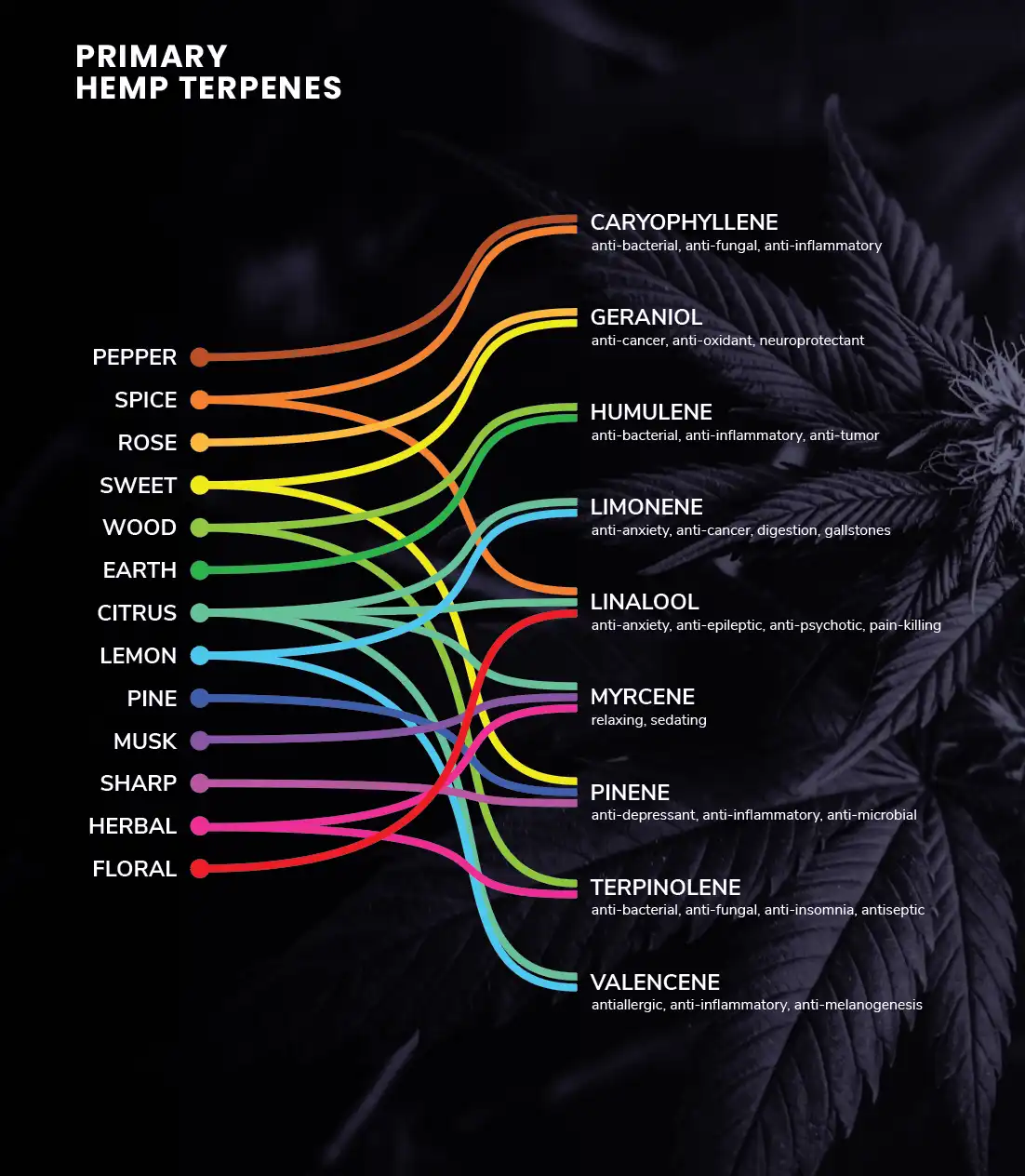Could cannabis terpenes act as a natural alternative for pain relief and replace opioids?
Researchers at the University of Arizona Health Sciences have identified specific terpenes in Cannabis sativa that can provide effective pain relief. Perhaps they may even replace opioids?

A recent study by researchers at the University of Arizona Health Sciences has identified specific terpenes in Cannabis sativa that may provide effective pain relief without the psychoactive effects of THC. The findings, published in Pharmacological Reports, suggest that these compounds could be a promising alternative for treating fibromyalgia and post-surgical pain.
Terpenes are organic compounds responsible for the aroma and flavour of many plants, including cannabis. Beyond their sensory properties, terpenes have been found to interact with biological systems in ways that could be beneficial for medical treatments.
The study, led by Dr. John Streicher from the University of Arizona’s Comprehensive Center for Pain & Addiction, builds on previous research that demonstrated the potential of terpenes to alleviate inflammation and chemotherapy-induced neuropathic pain.

The researchers tested four terpenes commonly found in cannabis—geraniol, linalool, beta-caryophyllene, and alpha-humulene—on animal models of post-operative pain and fibromyalgia. Geraniol showed the most significant pain-relieving effects, followed by linalool, beta-caryophyllene, and alpha-humulene.
The study also explored how these terpenes relieve pain. The researchers found that terpenes interact with the adenosine A2a receptor, a receptor that caffeine also targets and blocks. This suggests that terpenes may have a sedative effect, which could be relevant for future research into their broader applications in medicine.

Dr. Todd Vanderah, director of the Comprehensive Center for Pain & Addiction, emphasises the significance of research on plant-derived compounds. He points out that nature produces a vast array of chemical substances, many of which have yet to be explored for their medical potential.
Studies like the one discussed in this article contribute to a better understanding of how these compounds can be utilised to develop safer and more effective treatments.

Potential alternative for chronic pain conditions
Streicher's research indicates that terpenes are not particularly effective in alleviating acute pain resulting from injuries. However, the study demonstrated that these compounds provide significant relief for chronic or pathological pain conditions.
Fibromyalgia, a disorder affecting up to 5% of the global population, remains a challenge for modern medicine due to the lack of effective treatments. The U.S. Department of Health and Human Services estimates that around 4 million Americans suffer from fibromyalgia, with women being disproportionately affected. Current treatment options are limited, making the discovery of alternative pain relief methods particularly relevant.

While post- surgical pain is usually temporary, it can also be accompanied by physiological changes that increase inflammation and the sensitivity of the body's pain system. Opioids are usually prescribed for such pain and are effective in such situations, but their use is associated with serious side effects, including addiction as well as constipation, which can lead to surgical complications. Therefore, there is a need for alternative pain management strategies.
The study's research findings suggest that terpenes may represent such a novel and effective therapeutic alternative, and Streicher believes terpenes are a potentially safer alternative to opioids in the treatment of post-operative pain.
Globally, approximately 310 million major surgeries are performed each year, with many patients requiring post-surgical pain management. The potential of cannabis-derived terpenes to provide relief without the adverse effects of opioids could significantly impact the field of pain medicine.

The findings add to the growing body of research supporting cannabis-derived compounds for medical use. Unlike THC, terpenes do not produce psychoactive effects, making them a more accessible option for patients who need pain relief without cognitive impairment. While further studies are needed, this study is an important contribution to research into cannabis beyond the known cannabinoids.

